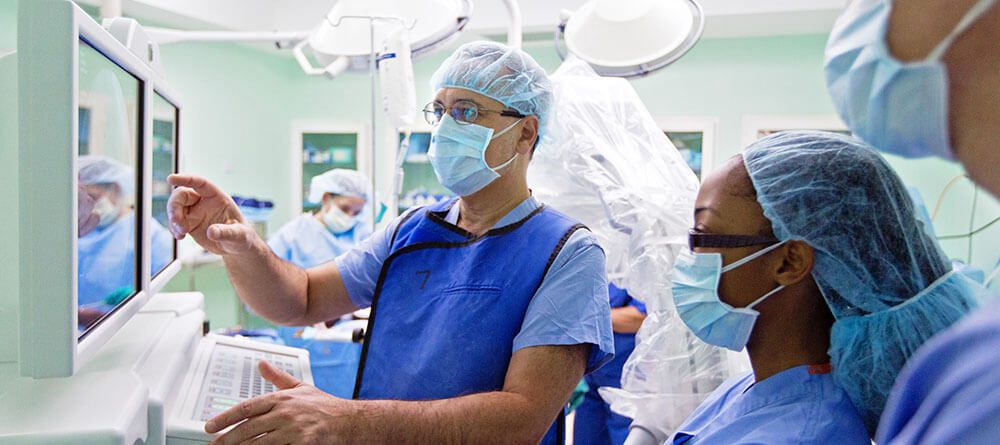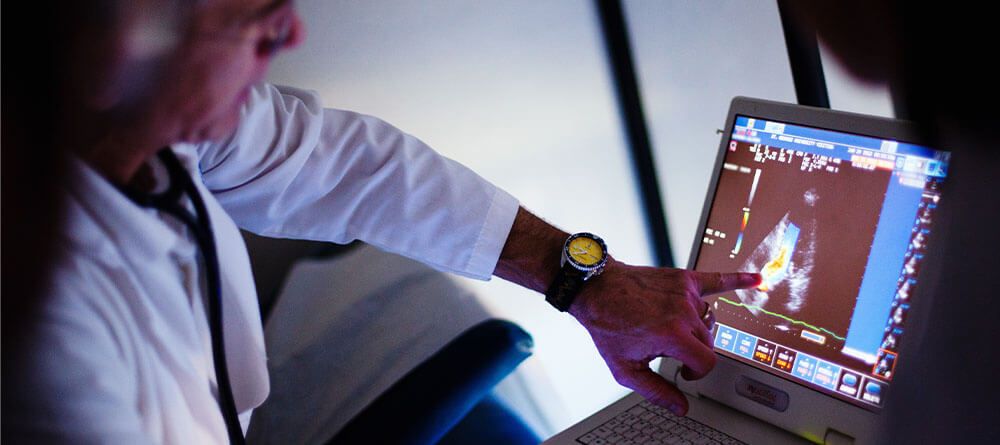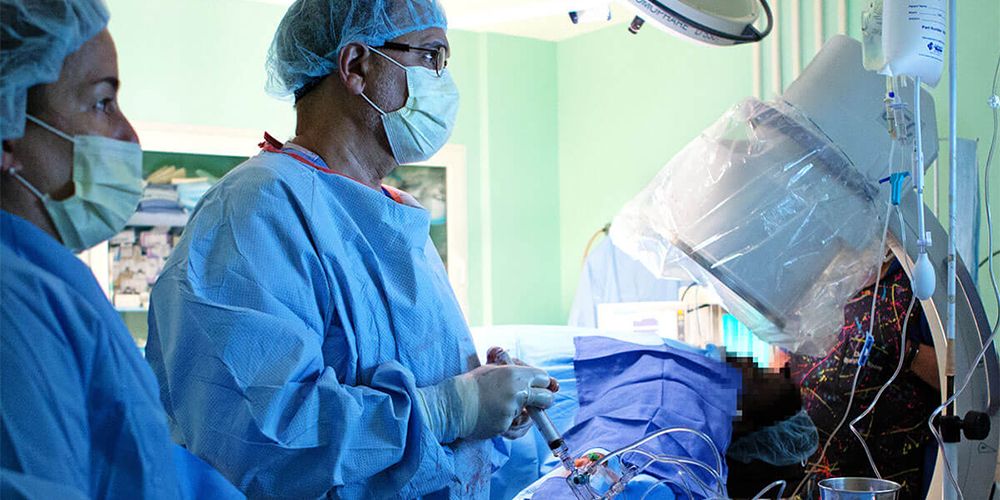Physicians often devote their careers to a particular patient population, disease, or organ system. They’re able to pursue the medical specialty or subspecialty that interests them most by completing a residency after medical school and possibly additional fellowship training. For those who are most intrigued by heart health, cardiology is a great field.
What is a cardiologist? And what do cardiologists do? Take a look at this overview of responsibilities and daily worklife for a heart doctor.
What is a cardiologist?
You’re unlikely to find one universally accepted cardiologist job definition. But in the simplest sense, cardiologists are doctors who work with the heart and blood vessels. They diagnose, treat, and work to prevent diseases of the heart—coronary artery disease, heart rhythm abnormalities, congenital heart disease, etc. They also act as consultants to other physicians.
Given how widespread heart disease is today, cardiologists are needed more than ever. The Centers for Disease Control and Prevention (CDC) reveals that heart disease is the leading cause of death for men and women in the US. One in every four deaths can be attributed to heart disease.
What does a cardiologist do?
Most patients see a cardiologist when they are referred by their primary care physician. They may be experiencing shortness of breath, heart murmurs, electrocardiogram (ECG) changes, or chest pain. A cardiologist can then examine these symptoms to diagnose a condition and create an effective treatment or management plan.
Cardiologists are also involved in more serious cases. Their expertise is needed for procedures that are performed by cardiothoracic surgeons. These can include cardiac catheterization, balloon angioplasty, and heart transplants.
Cardiologists work in both outpatient settings and hospitals. When they see a patient, they typically perform a physical exam. They may also order some tests, such as ECGs, X-rays, or blood work. Depending on the patient, they could recommend or perform an echocardiogram, an ambulatory ECG, an exercise test, or a cardiac catheterization.
How do you become a cardiologist?
Cardiology is a complex discipline, meaning the requisite education and training is extensive. The first step is completing a four-year medical program, which provides the foundational medical knowledge students will need in any career. During this time, you’ll study for and begin the United States Medical Licensing Examination (USMLE) series, which you must pass to become a licensed physician. You’ll also need to apply to residency programs near the end of your medical education.
The next phase is three years of internal medicine residency training, at which point you can become board-certified in internal medicine. This is actually a prerequisite for anyone who wishes to later become certified by the ABIM in cardiology or any of the related subspecialties.
Cardiovascular disease fellowships take an additional three years. Those who wish to subspecialize will devote one to two more years to a fellowship after that. To understand the intricacies of the human heart, cardiologists end up studying and training for ten or more years.

What are some different types of cardiologists?
Cardiology is a vast medical branch that offers many subspecialties. The American Board of Internal Medicine (ABIM) offers certification in four of these areas:
Advanced heart failure and transplant cardiology: Physicians who practice this cardiovascular subspecialty manage advanced heart failure cases and transplant patients. These cardiologists implement electrophysiologic and hemodynamic support devices and perform surgical procedures. They sometimes act as consultants for other physicians managing patients with significant heart failure. Obtaining certification in this field requires an additional year of training following a cardiovascular disease fellowship.
Adult congenital heart disease: Physicians who focus on adult congenital heart disease work with patients who have one or more defects in their heart or blood vessel structures. They often need to coordinate with numerous other providers to provide long-term care. Becoming certified in this subspecialty entails completing two years of additional fellowship training upon completing a cardiovascular disease fellowship.
Clinical cardiac electrophysiology: Physicians who subspecialize in clinical cardiac electrophysiology focus on managing complex cardiac rhythm disorders. These specialists perform both noninvasive and invasive diagnostic procedures. They treat arrhythmias by prescribing medication, implanting electrical devices, and leveraging other international techniques. To become certified in this subspecialty, physicians must complete an additional one-year fellowship after they’ve finished their cardiovascular disease fellowship.
Interventional cardiology: Interventional cardiology involves specialized imaging and diagnostic techniques to evaluate different areas of the cardiovascular system. Many of these procedures are performed using a catheter. Doctors specializing in interventional cardiology spend complete an additional fellowship following their cardiovascular disease training.
Advanced cardiovascular imaging: Cardiologists who specialize in advanced imaging have extensive training in Advanced Cardiovascular Magnetic Resonance Imaging (MRI) and Cardiovascular Computed Tomographic (CCT).

Work toward a cardiology career
What is a cardiologist aside from a doctor who focuses on heart health? It’s clear that this essential role involves everything from disease prevention to managing complex conditions. If you’re interested in pursuing this career, you’ll first need to obtain a medical degree.
To learn more about choosing a medical school that meets your needs, read “How to Choose a Medical School: 9 Things to Evaluate Before Accepting.”
*This article was originally published in February 2018. It has since been updated to include information relevant to 2021.


